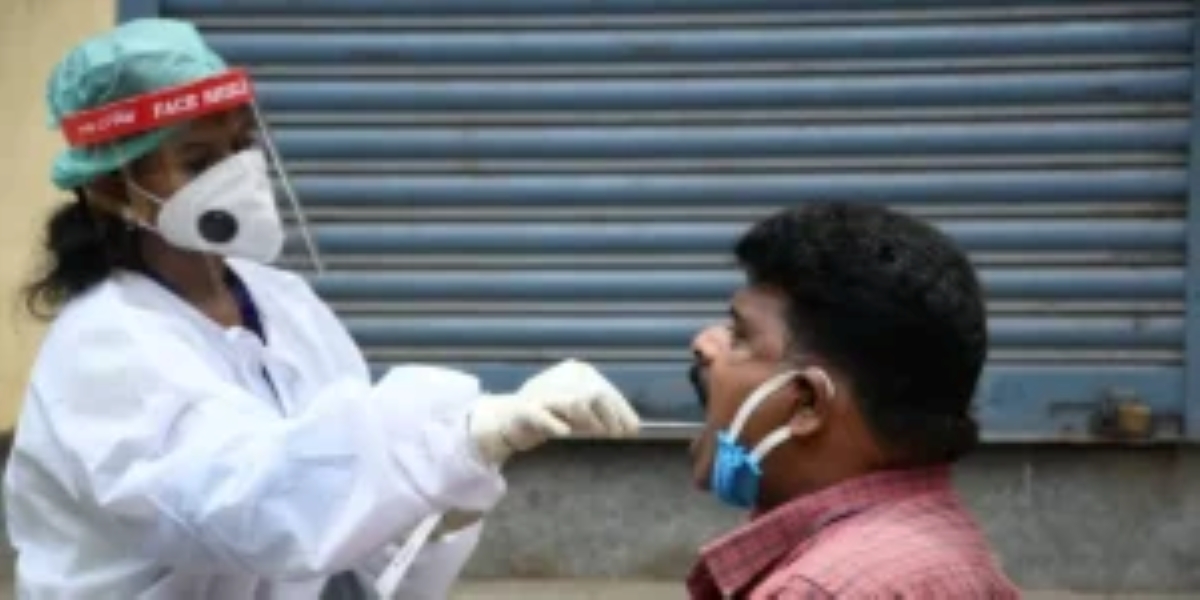Published Jul 16, 2025 | 11:09 AM ⚊ Updated Jul 16, 2025 | 11:09 AM

Covid 19 cases
Synopsis: A study by a NIMHANS team unveiled the reasons behind several neurological symptoms people have experienced during and after Covid-19 infection. The findings confirm what several people suspected: Long Covid is real, and it’s neurological too.
It has been widely believed that Covid-19 primarily affects the lungs and, consequently, breathing. However, as the pandemic unfolded, doctors at India’s premier mental health institute, NIMHANS in Bengaluru, noticed something else: Covid was messing with the brain also.
A study by Dr Netravathi M, Professor of Neurology at NIMHANS, and her team unveiled the reasons behind several neurological symptoms people have experienced during and after Covid-19 infection.
Over the last few years, NIMHANS conducted two major studies on Covid-19. One was a chart review of Covid patients with neurological symptoms. The other, published in the Annals of the Indian Academy of Neurology, examined the long-term impact of Covid on survivors, particularly in areas like sleep, memory and mental health.
The findings confirm what several people suspected: Long Covid is real, and it’s neurological too.
NIMHANS doctors tracked hospital records from March to September 2020, the first wave of Covid-19. Of the 3,200 neurology patients during this period, 120 (3.75%) had confirmed Covid.
“These weren’t vague feelings of unease,” said Dr Netravathi. Patients experienced concrete issues: Altered consciousness (seen in nearly half the cases), seizures (21%), and loss of smell (14.2%).
Stroke was the most common brain-related complication — 43 patients had strokes, including ischemic strokes, cerebral venous thrombosis, and haemorrhages.
“This tendency to induce a thrombotic state can result in cerebrovascular accidents and strokes,” the report noted.
Other conditions included encephalopathy (23), Guillain-Barré syndrome (10), and meningoencephalitis (5). Notably, the severity of Covid-19 varied widely: 53 patients had mild, 32 had moderate, and 35 had severe infections. Even those with mild Covid were not free from neurological effects.
The NIMHANS team also tracked Covid survivors for a year. The results were stark: 40.8 percent of patients reported neurological or sleep-related symptoms even after a year.
These included brain fog, depression, poor sleep, nerve pain, and anxiety. One of the most common — and misunderstood — complaints was “brain fog”, described by patients as “difficulty concentrating, forgetfulness, or feeling mentally slowed.” Formal tests confirmed cognitive impairment in some of these patients.
Another standout symptom was disturbed sleep. Insomnia was reported by nearly 30 percent of patients. Some of them even reported excessive daytime sleepiness, despite having slept through the night. EEGs, nerve conduction studies, and sleep studies were used to back up these observations scientifically. According to the report, the virus may be disrupting the brain’s natural sleep-wake cycle.
The study also found that patients, especially women, with pre-existing conditions like diabetes or hypertension, were more likely to experience long Covid symptoms.
“Females and those with comorbidities had higher rates of fatigue, sleep disturbances, and neuropathy,” the authors wrote, mirroring findings from global studies.
Interestingly, although patients with severe Covid, including those admitted to the intensive care unit (ICU), were more likely to develop long-term neurological issues, even those with moderate illness were not entirely spared.
From May to December 2021, NIMHANS also examined patients with neurological symptoms after receiving a Covid vaccine.
Out of the screened 116 patients, 29 were diagnosed with post-vaccinal demyelination, a condition in which the protective sheath around nerves is damaged, causing weakness, numbness, or vision problems.
Most of these patients (76%) developed symptoms after their first dose, especially Covishield (27 out of 29). The most common issues were myelopathy (37.9%), optic neuritis (20.7%), and Acute disseminated encephalomyelitis (ADEM) (17.2%). On average, symptoms began around 16 days after vaccination.
However, NIMHANS cautioned strongly against alarm. “Establishing a causal relationship between vaccination and neurological adverse events remains challenging,” the team noted.
They said that such events were extremely rare and may be overrepresented in a specialised neuroimmunology setup like theirs. “These occurrences are uncommon and have a very low incidence rate,” the report said, reiterating that the benefits of vaccination remain significant.
The report outlines four possible reasons behind Covid-related neurological symptoms:
Vaccine-related issues, on the other hand, could be suspected only when symptoms appeared within 42 days of vaccination, and only after other causes had been ruled out.
Interestingly, the NIMHANS team found no clear increase in neurological illnesses over the past year linked to either Covid or vaccines. However, they admitted that this area needed deeper research, including testing for clotting abnormalities, Covid antibodies, and long-term follow-up.
While the country has largely moved past the pandemic, the NIMHANS findings serve as a sobering reminder that for many, Covid’s aftershocks are still being felt, especially in the brain.
The team urged doctors to remain alert to neurological complaints, even if they seem vague or psychological.
“It is important for clinicians to be aware of these long-term effects and manage them appropriately,” the report noted, “especially in people recovering from Covid who show changes in memory, mood, or behaviour.”
The authors also identify two groups needing close monitoring: Those who had neurological symptoms during Covid and those who developed them after recovery.
Tracking both can help determine “if long COVID or other adverse effects emerge during later stages.”
Meanwhile, Dr Netravathi and her team laid out clear recommendations for the government to address the study’s findings.
“Understanding these findings may support strategies to build resilience and assist individuals in managing work-life balance,” the team concluded.
(Edited by Muhammed Fazil.)

